Dear BBS Family Members,
I would like to update you on some exciting news about our efforts to make a difference in BBS. A support group for adults with BBS was started in February. About a dozen adults with BBS have a conference call twice monthly (Sunday evenings) to discuss things important to them. Ellyn Hunter, a member of the BBS community, is the facilitator for the group. Members of the support group have discussed their varied interests, concerns and hobbies and reading is a favorite past time for some of them. A book club is now planned with the first monthly gathering planned for April 6th at 7:30 pm central time. Individuals attend by calling a toll free number. Participation is free and also a great way to meet others. If you are interested in participating please contact Ellyn at ellynhunter@charter.net.
Research Updates
In the Clinical Registry Investigating BBS (CRIBBS), we noted that skin health was a concern expressed by a number of people. Skin problems in BBS have rarely been described in medical reports, however, several scientific studies have shown that the primary cilia (critical cell structures affected in BBS) play an important role in skin development beginning in the womb and continuing afterwards. During the last year, our dermatologists have performed comprehensive skin examinations on 31 individuals attending the Marshfield Clinic Treatment Center for BBS. I would like to share with you in advance some important information and advice prior to the publication of this combined dermatology and medical health information.
We found that every individual in the study had at least one skin disorder and many individuals had multiple skin disorders. More than half of the individuals had four or more skin problems. The most common problem was a skin problem called keratosis pilaris (KP) sometimes called "chicken skin". Keratosis is shown in the pictures below. Being overweight is one cause of KP. In our study 80% of individuals with BBS had KP, while in common everyday obesity only about 20-30% of people had KP. One of the complications of KP is dry, itchy skin usually found on the upper arms, thighs and cheeks.
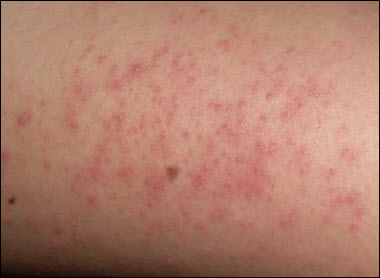
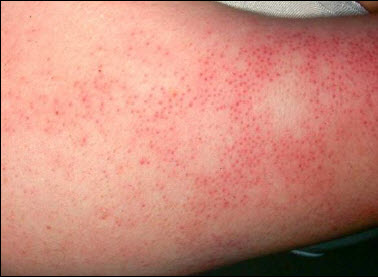
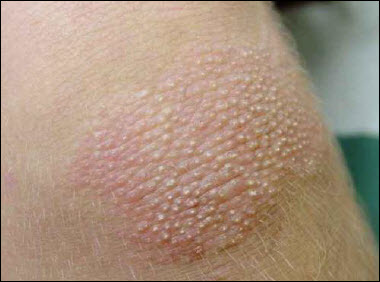
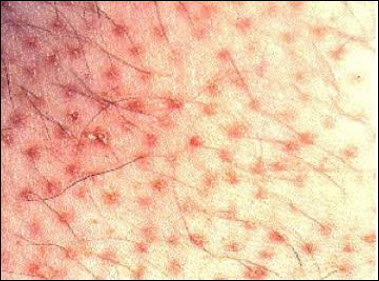
In our study group, about 94% of individuals were overweight or obese based on published criteria for children and adults. That means that the body mass index (BMI) was 25- 30 kg/m2 (overweight) or greater than 30 kg/m2 (obese) in the adults. Some skin issues associated with obesity are striae (or stretch marks), acanthosis nigricans and skin tags. Pictures of each are provided below. Obviously weight loss may make a difference with these issues, and I remain optimistic that effective therapies for weight loss in BBS are being explored.
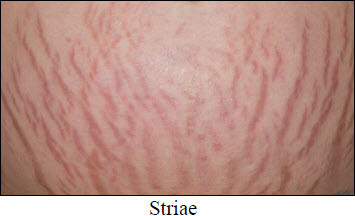
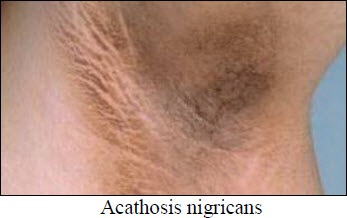
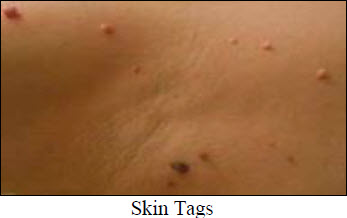
Psoriasis has been reported in BBS in two medical reports in two different individuals with BBS. We had one patient with psoriasis, but it does not appear to be a problem that is more common in BBS than in the general population. Nevi (moles) have also been reported by a paper in one child with BBS. We observed nevi in about 50% of individuals but the nevi are not more extensive or common than the incidence of moles observed in the general population.
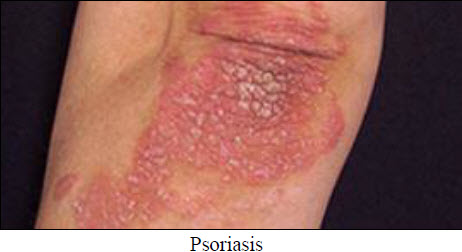
Here are some suggestions for the treatment of KP: Our dermatologists recommended that KP and dry skin can best be treated with non-allergenic emollients and moisturizers without perfumes, fragrances, dyes or preservatives. Examples of these skin care products include Eucerin, Cetaphil and Aquaphor. With the guidance of your doctor, 12% ammonium lactate or low potency topical urea judiciously applied to the skin can be beneficial. Mild skin removal with a loofa pad while bathing can be of value, but caution against aggressive scrubbing of the skin is advised. Antihistamines such as cetirizine (Zyrtec), diphenhydramine (Benedryl) and loratadine (Claritin, Alavert) are no longer advised for itching due to dry skin or KP.
Thank you, as always, for your participation in CRIBBS. If you are not a member of CRIBBS, please consider joining at www.bbs-registry.org or calling 877-594-3499. If you are interested in learning more about the Marshfield Clinic Treatment Center for BBS please feel free to email the BBS Clinic Coordinator at suda.sonia@marshfieldclinic.org or calling 715-389-3235. You are also welcome to contact me at any time.
Best wishes and I hope to see many of you in June at the BBSFA Conference. You can register to attend at www.bardetbiedl.org.
Bob Haws, M.D.
Medical Director, Treatment Center for BBS
Marshfield Clinic
Display in Latest News: Yes
